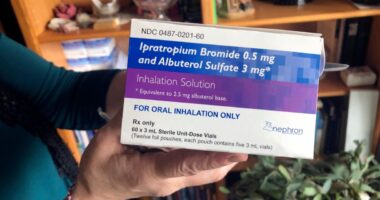
Tensions between the cruise industry and U.S. authorities are rising as operators push to restart sailings from the U.S. by July.
The industry argues that the Centers for Disease Control and Prevention’s latest guidance that travel poses low risks for fully vaccinated individuals should apply to cruises, too. It wants the agency to scrap a multifaceted regimen for sailing that has been in place since the fall.
“We’d just like to be treated similar to the rest of travel and entertainment and tourism sector,” Carnival Corp. CCL 2.29% Chief Executive Arnold Donald said Wednesday during a conference call.
The CDC still recommends against travel on cruise ships because of what it calls a very high risk of Covid-19 on such vessels. Meanwhile, it is sticking with the phased approach outlined in its conditional-sail order, though it recently pointed to the possibility of a summer restart of service.
The agency’s “goal aligns with the desire for resumption of passenger operations in the United States expressed by many major cruise-ship operators and travelers, hopefully by midsummer,” a CDC spokeswoman said Wednesday.
Cruise operators haven’t sailed from the U.S. for about a year after coronavirus outbreaks brought voyages to a halt.
The industry remains unsatisfied with its treatment. Carnival, the world’s largest cruise operator, is very disappointed with the CDC’s latest guidance for operators, Mr. Donald said.
The CDC last week issued technical instructions for the industry on increasing the frequency of reporting Covid-19 cases and illnesses from weekly to daily, creating planning materials for cruise lines’ agreements with local authorities and establishing a plan for crew and port personnel’s vaccinations. The update didn’t specify when operators can resume sailing out of the U.S.
The CDC’s conditional-sailing framework requires operators to conduct mock sailings and apply for a certificate at least 60 days before offering passenger cruises. The industry says the process shouldn’t be that tedious as vaccination rates pick up.
“That is not necessarily a workable or practical solution,” Mr. Donald said of the CDC’s April 2 update, adding that the company is in dialogue with the CDC and the Biden administration.
Carnival Cruise Line this week extended its U.S. pause through June 30. The company’s flagship line hasn’t made plans to relocate ships from U.S. ports, though it “may have no choice but to do so in order to resume our operations, which have been on pause for over a year,” said Christine Duffy, the brand’s president.
Resuming service from the U.S., a main passenger cruise market, would mean the start of a reversal of losses for operators. Carnival on Wednesday posted a fiscal first quarter loss of nearly $2 billion after losing $10.24 billion for all of fiscal 2020. Booking volumes for future cruises during the latest quarter, which ended Feb. 28, were about 90% higher than the preceding quarter, the company said. Advanced bookings for 2022 are ahead of 2019, it added.
In the meantime, Carnival and other operators are counting on their pockets of revenue outside the U.S. Carnival’s Seabourn luxury line said it received approval from Greece to restart voyages in July. Other countries, including Singapore, Italy and the U.K., have authorized cruises or set a clear target date for them to set sail. Almost 400,000 passengers have sailed since some countries began to allow cruises again in July 2020, according to the Cruise Lines International Association.
Cruise companies have required vaccination for passengers and crew in some capacity as they bid to restart. Despite the CDC’s determination that travel is a low-risk activity for people who have been vaccinated, officials still advise against it as Covid-19 cases rise in the U.S. For cruises, the agency also recommended that all eligible port personnel and travelers get vaccinated but didn’t specify vaccination as a requirement.
Write to Dave Sebastian at [email protected]
Copyright ©2020 Dow Jones & Company, Inc. All Rights Reserved. 87990cbe856818d5eddac44c7b1cdeb8








